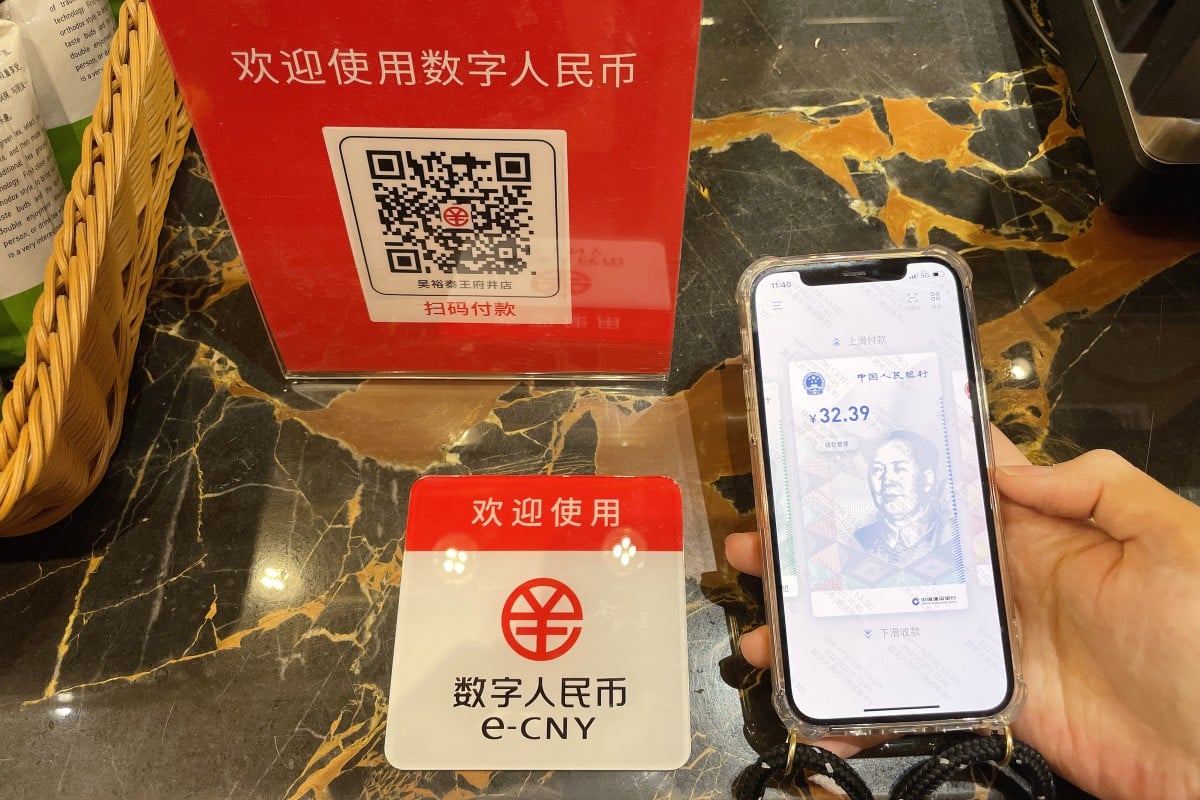In the bustling streets of Suzhou, China, a subtle revolution in currency is quietly underway. Sammy Lin, an account manager at a state-owned bank, finds herself at the forefront of this digital frontier, receiving her monthly wages not in traditional cash but in the form of digital yuan. Yet, despite this innovative approach to remuneration, Lin and her cohorts are reluctant pioneers, preferring the comfort of familiar financial avenues over the uncharted waters of virtual currency.
The initiative to pay workers in digital yuan stems from a larger governmental push to normalize the currency through pilot programs targeting employees of government bodies and state-owned enterprises. Changshu, a city under Suzhou’s jurisdiction, blazed the trail by mandating all public sector workers receive their salaries in digital yuan, with other entities swiftly following suit. However, the enthusiasm for this novel payment method belies a stark reality: few are actually utilizing the digital yuan for its intended purposes.
Lin’s reluctance to embrace the digital yuan mirrors sentiments shared by many of her peers. Functional limitations, notably the absence of interest accrual within the e-CNY app, dissuade users from maintaining funds in digital form. Moreover, the scarcity of merchants accepting digital yuan further hampers its practicality as a medium of exchange. While China’s digital payment landscape is dominated by the likes of Alipay and WeChat Pay, platforms beyond the purview of direct government oversight, the allure of these established systems undermines the appeal of the digital yuan.
Privacy concerns loom large in the public consciousness, exacerbating apprehensions surrounding the digital yuan’s adoption. Unlike traditional cash transactions, digital yuan transactions are inherently traceable, raising red flags for individuals wary of surveillance. Yi Dongyan, a researcher at the Cheung Kong Graduate School of Business, underscores the delicate balance between privacy and security, positing that the digital yuan’s transparency necessitates nuanced considerations regarding information tracking and safeguarding.
The dichotomy between anonymity and traceability underscores the digital yuan’s unique proposition. While small-value transactions afford users a semblance of anonymity, larger transactions mandate identification to deter illicit activities such as money laundering. Mu Changchun, director of the Digital Currency Research Institute under the People’s Bank of China (PBOC), extols the virtues of “controllable anonymity” as a safeguard against privacy infringements, yet critics remain skeptical of its efficacy in assuaging public concerns.
Albert Wang, a municipal government employee, embodies the ambivalence towards the digital yuan. While accustomed to receiving a portion of his salary in digital form, Wang’s spouse opts for immediate withdrawal, citing the currency’s limited utility and the prevalence of established payment platforms. Despite aspirations to combat corruption through reduced cash bribery, the digital yuan’s nascent ecosystem and functional constraints undermine its efficacy as a transformative force.
Amidst fervent global competition to inaugurate state-backed digital currencies, China’s digital yuan stands as a testament to technological ambition. Yet, its path to widespread adoption remains fraught with obstacles, from entrenched payment ecosystems to apprehensions regarding privacy and utility. As China navigates the intricate terrain of digital finance, the fate of the digital yuan hangs in the balance, awaiting a disruptive innovation capable of reshaping the financial landscape.
In the interim, the experiment continues, with millions of e-CNY wallets opened and an expanding network of merchants accepting the currency. Whether the digital yuan will realize its transformative potential or fade into obscurity remains uncertain. As the world watches, China’s digital currency saga unfolds, a saga defined by innovation, skepticism, and the quest for financial reinvention.



